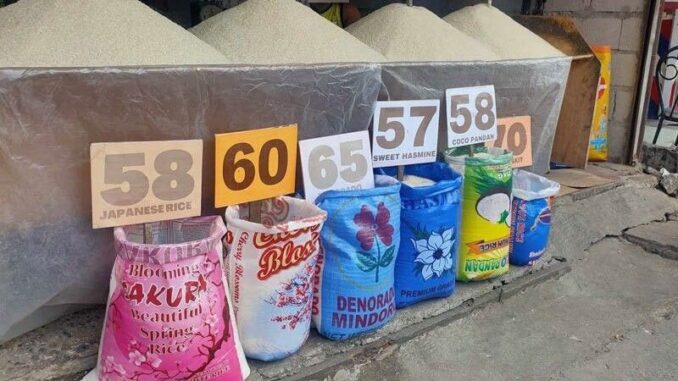
MANILA, Philippines — The country’s rice imports through September rose by more than a fifth on an annual basis to almost 3.3 million metric tons (MMT) as purchases abroad picked up in the latter part of the third quarter.
Bureau of Plant Industry (BPI) data showed rice imports from January to September reached 3.28 MMT, about 22 percent higher than the 2.68 MMT recorded volume in the same period last year.
Rice imports in August and September picked up steam as they closely matched the average import volume in the first half of about 400,000 MT.
Industry players and pundits have been closely monitoring rice import arrivals after the government slashed further the tariff on the commodity to a historic low of 15 percent in July.
At least 2.6 MMT of the rice imported during the reference period came from Vietnam while about 410,000 MT were sourced from Thailand, based on the BPI data.
Rice traders and importers are getting more aggressive in terms of imports as their application for sanitary and phytosanitary import clearances (SPSICs) is also gaining traction.
The BPI issued 1,132 SPSICs in September, representing a volume of 886,027.7 MT, the most in eight months.
In the first three days of October alone, the BPI issued 204 SPSICs for the importation of 162,898 MT of rice.
Earlier, experts and rice industry players welcomed the lifting of India’s restriction on the export of its non-Basmati white rice, noting that the measure would lead to more stability in the world rice market supply, resulting in lower prices.
Some experts note that the country’s rice imports from India could increase in the coming months as the prevailing export price in the South Asian country is lower than the prices offered by Vietnam and Thailand.
India set a floor price of $490 per MT for its non-Basmati white rice, which some experts earlier noted was relatively cheaper by $50 to $100 than the prevailing rice export prices of Vietnam and Thailand.
“Considering that it is cheaper compared to Vietnam and Thailand, it can be an option for additional rice supply and import diversification,” said Marie Annette Dacul, the executive director of University of Asia and the Pacific ‘s Center for Food and Agri Business.
The country imported 22,039 MT of rice from India from January to Oct. 3, more than half the 13,794 MT volume imported for the entire year from the South Asian country, based on BPI data.


Be the first to comment